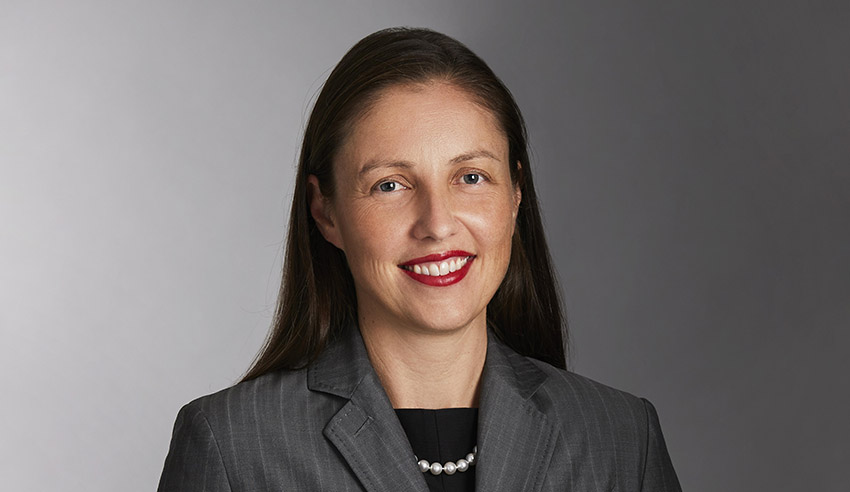As cryptocurrency and the metaverse become commonplace, more lawyers need to be able to understand the digital landscape, according to this law firm founder.

Natasha Blycha is the founder and managing director of Stirling & Rose – which focuses on a number of different things, from crypto and digital assets, Web 3.0, metaverse, emerging tech and AI, as well as digital ESG. Speaking recently on The Boutique Lawyer Show, Ms Blycha reflected on her journey away from BigLaw to eventually starting her own firm.
“I was coming from a different way of seeing things. So, then I think it was a matter of, in HSF, probably doing the same things as what has precipitated setting up Stirling & Rose. And that is probably because I have a founder mindset. So, doing that inside of a big law firm is a matter of thinking, okay, how do we change the insides of a big organisation?” she said.
“And we were successful and were blessed by HSF in giving us the opportunity to set up the Digital Law Group, and the Digital Law Group ran across 15 different offices. And it was just a majorly exciting fertile hunting ground for finding lawyers who were also interested in tech and also had a computer science background and that merging hybrid lawyer.”
Ms Blycha has both a personal and professional interest in digital law – and added that lawyers, in particular, should be familiarising themselves with things like cryptocurrency and the digital landscape.
“Digital law is when you take static law, whether it be in a contract, whether it be in the legislation itself, and you add code or you add automations. So, in the context of a legal contract, it may be that you add automation into the contract. So, you’ll think of a contract containing code, or it may be rules as code,” she explained.
“It may be that a piece of legislation is able to execute of its own accord, anything in terms of the regulatory rules around that, the actual details of the tech themselves, the product build, whether that’s moving from questions of cyber security or privacy law, those are the types of things that a digital lawyer will get involved in. And taking it to its highest level, it’s asking the questions about how do we bring the law into the next layer of Web 3.0 or the metaverse?”
Additionally, more lawyers are needed in this area, Ms Blycha warned.
“We need more lawyers to be digitally literate. I think it’s deeply serious. I think it’s the same consideration that we think about when in the past, we, as a society, went through the changes that required us to have public infrastructure of courthouses. There’s been times in the past where we didn’t have courthouses. So, then we need to ask really big questions and be literate in saying, okay, what does digital infrastructure of the future look like when we are going to be automating contracts? That’s the kind of question I would like to see the profession asking. You don’t have a choice. It’s your legal duty,” she explained.
“And the reason I say that is if you look at, not just efficiency drivers, but you look at legal duties, they do ask you to be using tech where tech is more efficient to do so. And we saw that play through with technology-assisted review, no one goes and does a discovery anymore when it’s easier and cheaper to use a computer or an algorithm to do that. There’s a lot of problems with that as well. And if there’s a lot of problems, then we can’t just flip over to using technology without paying attention to the subtleties and the legal questions.”
In terms of needing more lawyers to be “digitally literate”, Ms Blycha made sure that she was hiring people who cared about the digital landscape when setting up her firm.
“One of the attractions for the partners of Stirling & Rose was saying, we will make it part of our KPIs to do thought leadership. We’ll make it part of our KPIs to care about what happens in submissions, because it takes a bit of effort to do that. And oftentimes a modern law firm, the KPIs are only directed to those billable hours. So, we were trying to change the metrics, to make us do the work that we think is important,” she said.
“If you’re not paying attention to what’s happening here, and if you’re not paying attention to say GPT-3, and you’re not saying, okay, it’s possible for code to actually create code. It’s possible for documents to be generated by an algorithm. Then you have to understand that the profession of law itself, whether it takes five years, whether it takes 12 years, it will be entirely different. So, you don’t really have a choice from your own professional standpoint but to pay attention to what’s going on.”
The transcript of this podcast episode was slightly edited for publishing purposes. To listen to the full conversation with Natasha Blycha, click below:

Lauren is the commercial content writer within Momentum Media’s professional services suite, including Lawyers Weekly, Accountants Daily and HR Leader, focusing primarily on commercial and client content, features and ebooks. Prior to joining Lawyers Weekly, she worked as a trade journalist for media and travel industry publications. Born in England, Lauren enjoys trying new bars and restaurants, attending music festivals and travelling.